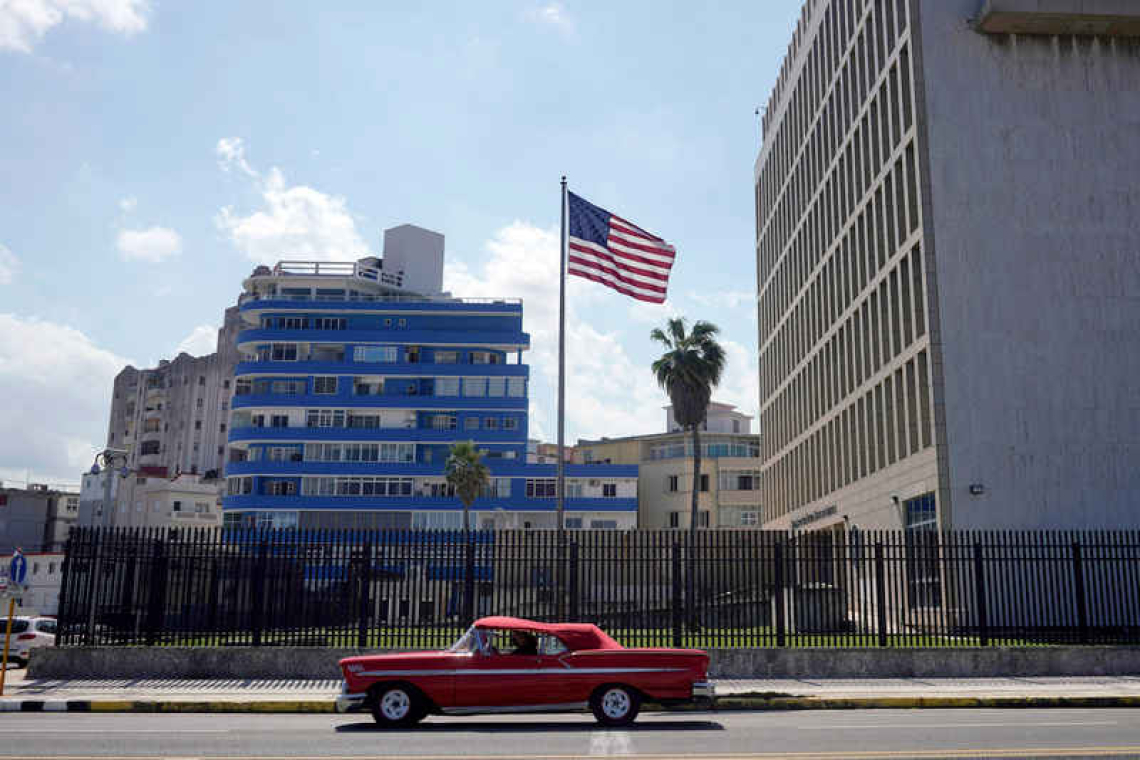MCLEAN, Virginia--A globe-spanning U.S. intelligence investigation has concluded it is "very unlikely" a foreign adversary is responsible for the "Havana syndrome" ailment that has afflicted U.S. diplomats, spies and other personnel worldwide, according to declassified findings released on Wednesday.
The symptoms of the mysterious ailment, first reported by U.S. embassy officials in the Cuban capital Havana in 2016, have included migraines, nausea, memory lapses and dizziness. About 1,500 cases now have been reported by U.S. government agencies and departments, including some from this year.
Seven of the 18 U.S intelligence agencies conducted the more than two-year investigation in more than 90 countries, including the United States, where the FBI opened a criminal probe. The agencies even considered the possibility that extraterrestrials were responsible, but ruled that out, a U.S. intelligence official told reporters in a briefing.
"Most IC (intelligence community) agencies have concluded that it is 'very unlikely" a foreign adversary is responsible," the assessment said.
It also found "no credible evidence" that any American foe possessed "a weapon or collection device," including an emitter of electromagnetic energy pulses, that could cause the symptoms. An advisory group of experts from inside and outside the government last year found that such pulses could have been targeted at some of those who reported symptoms.
"IC agencies assess the symptoms reported by U.S. personnel were probably the result of factors that did not involve a foreign adversary, such as pre-existing conditions, conventional illnesses and environmental factors," the assessment concluded.
Confidence in that conclusion was bolstered by findings that "medical, environmental and social factors can explain" many symptoms, it continued. "We cannot tie a foreign adversary to any incident," said one of two U.S. intelligence officials who briefed reporters. He added that pre-2016 reports of similar symptoms also were examined, but there was insufficient data on those.
None of the foreign intelligence services contacted during the investigation reported similar incidents, he said.
The probe involved hundreds of U.S. intelligence officers, other officials, and outside experts, and covered more than 90 countries, the intelligence officials said. It ranged from examining possible Russian involvement, interviews, reviews of recordings, and developing special sensors, to creating 3-D models of incident locations, identifying individuals and buildings near those sites, and tracking license plates, the assessment said.
U.S. intelligence agencies also tracked individuals, such as arms dealers, around the world through their electronic devices "seeing what they were doing, who they were talking to," said the second intelligence official. "We had leads that took nine months to unpack," she said.







